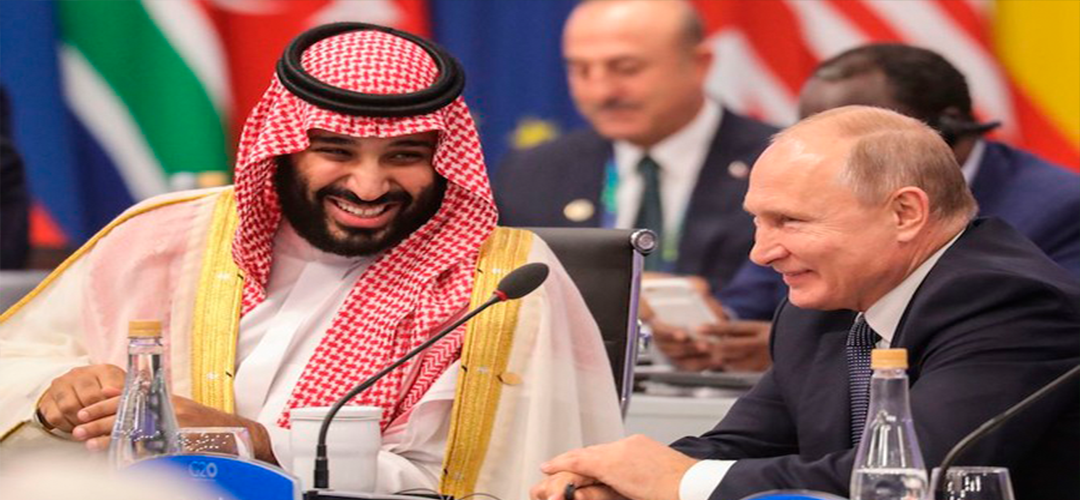RUSSIAN OUTREACH IN THE MIDDLE EAST
July 30, 2022 | Expert Insights

Largely ignored by the global media was a recent visit to the Middle East, which went almost unnoticed. In his second foreign visit outside Russia, (after the BRICs meeting in Beijing) since the launch of his 'special military operation', President Putin met President Erdogan and the Iranian President Raisi in Tehran.
Background
Russia, Iran and Turkey form a strange trio hinged as these relations are on the blood-soaked battlefields of Syria.
All three leaders had their own agenda for the summit. Import-dependent Turkey is keen to resume the supply of wheat from Ukraine else on top of its varied political and economic travails is added the spectre of food riots. Also, Turkey has been threatening a large-scale military operation in northern Syria during the congenial summer months against the PKK, for which it needs a Russian nod. For the Iranians, Russia is an important ally in the Shia crescent of Syria and cut off from the western world by sanctions, Russia is a trading partner by compulsion. For President Putin, it was an opportunity to show the West that he was not as isolated as they had tried to make out and could still wield influence in the strategic Middle East.

Analysis
Iran has been the historical backer of the Assad regime in Syria, while Turkey was a leading proponent of evicting the pro-Iran government through its own brand of the armed opposition. Russia, a long-term friend of the Assad family, militarily intervened in Syria in 2015 and since then has been playing a very proactive role. Both its regular army and private military contractors (the Wagner Group) were instrumental in rescuing the Assad regime from the brink of a fate that would have resembled Ghaddafi's' in Libya. In this, Russian forces closely worked with Iranian-backed Hizballah and regular Iranian military units. With divergent geopolitical interests, it was not surprising that Turkey would clash would Russian militarily in Syria, a confrontation that occurred suddenly when Turkish F-16s downed a Russian SU-26 Frogfoot ground attack aircraft.
It is extremely difficult to clearly discern the contours of the Russian-Turkey relationship, cloaked as it is behind layers of conflicting geopolitical interests. Whether it be Libya, Syria or even Nagorno Karabakh, both have lined up with opposite sides and directly and indirectly inflicted injury on each other. Yet they enjoy substantial trade, and Turkey, a NATO member, went ahead with the S-400 deal against American threats and sanctions. Historically they have shared cultural ties, although Istanbul's control over the Dardanelles, the only exit from the Black Sea and site of the disastrous allied amphibious landing of World War 1, has been a point of friction between the two. Even now, with the war in Ukraine raging, Turkey has closed the strait to Russian naval units leaving the combat zone along the Black Sea under the 1936 Montreux Convention.
Turkey perceives its treatment by the West as grossly unfair, especially questioning its human rights record vis a vis the Kurd insurgency that enjoys widespread support in the West. Turkey's application for joining the EU has been pending for so long that any realist Turk would realise that it would never come across. It is this disenchantment with the West that has forced Turkey to forge its own independent foreign policy in which Russia figures prominently, despite the occasional spats between them. After all, both enjoy healthy trade, and during the Ukraine war, while being a NATO member, Turkey has been circumspect in its criticism of Russia and has played a prominent role in the efforts to bring peace. The recent agreement between Ukraine and Russia to resume grain shipments to the Middle East and North Africa was a feather in the cap of President Erdogan. Suffering under the burden of a massive Syrian refugee influx, Ankara is keen to create an enclave for Syrian refugees in Northern Syria where they can be managed better with international aid. Turkey-Iran trade has been growing in the recent past, having crossed over $30 billion, despite their geopolitical differences in Syria and other trouble spots in the Middle East.
Assessment
- It is not clear if any substantial agreement came out of the summit. It appears that for President Putin, it was more of a photo-op to convince the international and domestic audience that he was not a pariah as his enemies were projecting him to be. This was achieved although the western media did not play up the visit.
- Iran is a close ally and would gladly facilitate any event that would help grandstand the Russian point of view. Furthermore, with sanctions reducing Russian trade options and Iran in an identical predicament, both can come together to each other's aid on commercial matters. Russia would also like Iran not to give in to Western pressure to increase oil production in exchange for the resumption of the Joint Comprehensive Plan of Action. At this juncture, it is not in Russian interest to cool down the energy market in favour of western consumers.
- As regards Turkey, no green signal was given to it by Iran and Russia for its operation in Northern Syria.








Comments